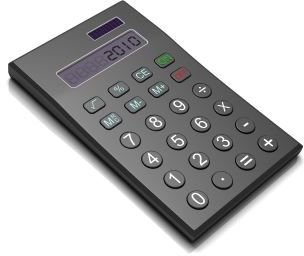Exploring Careers That Use Math
What Are the Careers That Use Math?
Careers that use math can be found in almost any industry. Various professionals and experts depend largely on their mathematical knowledge to execute the regular requirements of their jobs. Mathematical computations are necessary for many jobs, from shopkeeping to heart transplantation. However, the required knowledge of mathematics varies with each job. In ensuing paragraphs you will read about some lucrative careers using mathematics as a backbone.
Accountants
Accounting is a lucrative career involving mathematics and statistics. Accountants keep track of accounts working for various businesses to compute their profits and losses. They also serve individuals who require help in keeping track of their personal finances. They use mathematical computations and formulas to balance spreadsheets. Accountants can be found in any organization, government agency, or business, and they play a vital role in the future success of their employers. Accounting revolves around number crunching and is considered as the most number-intensive math career.
Mathematicians
Researching and studying the role of numbers falls under the job description of mathematicians. They compute numerical equations related to logic and space. Fields like economics, probability, abstract algebra, number theory, game theory, and statistics all require extensive knowledge of mathematics and are considered among the key areas of research for mathematicians. These professionals spend their entire lives solving questions and utilizing their knowledge of mathematics in order to find answers through research. Sir Isaac Newton, Carl Gauss, and Archimedes are examples of some of the most famous mathematicians in history.
Architects

Architects use mathematics in designing bridges and buildings. A minute mistake in calculations can cause problems. The amount of material required for constructing any structure needs knowledge of mathematics. In order to create cost proposals and blueprints, knowledge of mathematical principles is required.
Actuary
An actuary is the spine of any insurance organization. The job involves mathematical computations all day, every day. The key responsibility of an actuary is to examine the financial risks using mathematical/statistical formulas and suggesting solutions to mitigate these risks. An actuary analyzes and calculates the data of events like disasters, sickness, death, illness, and loss of property. Using this information, an actuary designs pension or insurance plans. The insurance companies heavily rely on tables of information created by actuaries to offer packages to their clients but also to keep in view the company’s profit.
Engineer
Engineering without mathematics is like a body without a brain. The engineering profession is considered one of the highest paying careers. A person without extensive knowledge of mathematics cannot become an engineer. Applied mathematics, calculus, and linear algebra are the branches of mathematics implemented in various fields of engineering. All kind of engineers, from mechanical engineers to aerospace engineers, are wrapped up in careers involving mathematics. Engineers play with numbers and mathematical formulas in order to design and implement new technologies. From reliability and stability in electrical equipment to traffic in mobile networks, mathematics plays a vital role in a way no other subject can.
<em>renjith krishnan</em> <em>/ FreeDigitalPhotos</em>
Careers That Use Math - Bridge
Math Careers - Engineer Statue
This post is part of the series: Math Careers
Learn about the careers that are associated with Math.
